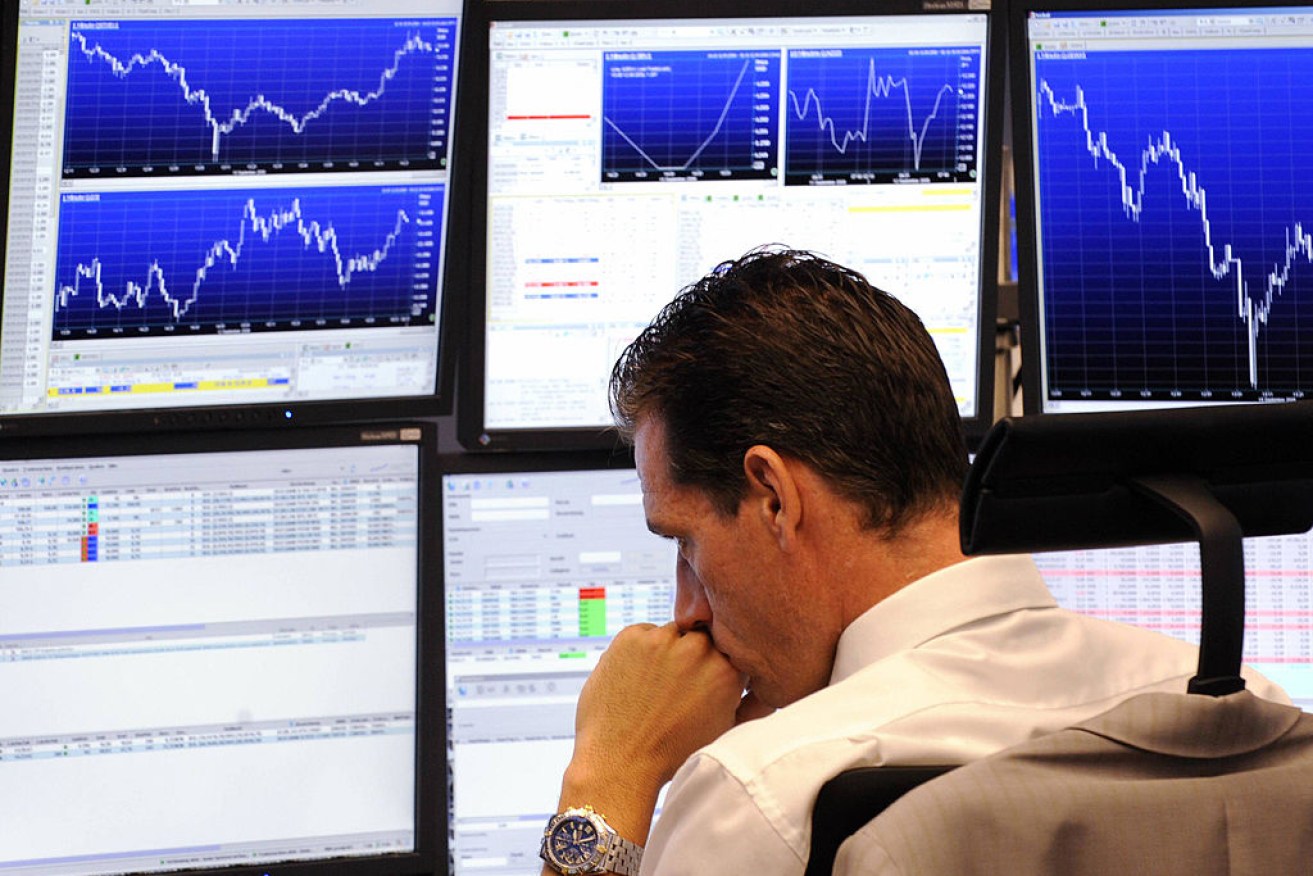Recession? Not based on these figures, economist says


The last time defaults spiked was during the global financial crisis. Photo: Getty
Use of the word “recession” has exploded by 610 per cent over the past year in stories about the Australian economy, according to one media monitoring site.
Meanwhile, use of positive adjectives like ‘strong’ or ‘healthy’ or ‘grew’ was down 15 per cent year on year, while negative terms like ‘weak’, ‘negative’ or ‘fell’ were up 167 per cent.
Add to that the dismal GDP figures out last week, anaemic wage growth, rising unemployment and concerns about consumer spending, then the recession premise would seem to have merit.
Not a chance, says independent economist Stephen Koukoulas.
“Sorry to disappoint the nongs out there who reckon Australia is on the cusp of recession and that the mortgage market will drive the banks towards collapse,” he tweeted at the weekend.
And he had data to prove it – a graph detailing the “non-performing assets” of banks.

Non-performing assets are loans in default or in arrears on their scheduled payments of principal or interest. Generally, a debt is considered non-performing if it is 90 days behind schedule.
“To me, there’s not a shred of evidence that there’s any stress or concern in the bank sector,” Mr Koukoulas told The New Daily.
“Even though the economy is showing signs of weakening, you just need to look at auction clearance rates, the spike in housing credit and the lack of bad debts. There’s no evidence to say there’s any financial problems emerging at all.”
The last time Australia saw a spike in bank defaults was during the global financial crisis, but they were at their worst during the early 1990s recession when unemployment hit 11 per cent and standard variable interest rates hovered around 17 per cent between mid-1989 and mid-1990.
While not as strident as Mr Koukoulas, Reserve Bank assistant governor (financial system) Michele Bullock told a business lunch in August that if people were looking to bank data as an indicator of bigger problems, they’d be disappointed.
“In general, the financial health of businesses looks sound,” Ms Bullock said. “And while some individual sectors and regions do face challenges, these do not currently pose a threat to financial stability. Financial institutions are resilient and their exposures to these areas remain low.”
Apart from non-performing loans in the private unincorporated business sector having “risen a bit over the past year or so”, they were still at low levels, while the commercial property and small business sectors posed no concerns, Ms Bullock said.

Non-performing loans are an important barometer because if businesses struggle to meet their obligations, that can flow through not only to bank balance sheets, but employment and business viability in other sectors, also.
As Ms Bullock explained it, a poorly performing retail businesses might affect workers as well as owners and developers of shopping centres, or a farm business hit by the drought will reduce spending on capital, labour and discretionary spending affecting businesses in their community.
AMP Capital senior economist Diana Mousina said as a share of banks’ domestic loan books, non-performing loans comprised about 1 per cent. That, she said, was “pretty normal”.
That same figure was around 0.5 per cent before the global financial crisis, and then quickly jumped to about 2 per cent after the crisis hit, she said.
Ms Mousina said while the non-performing asset figures certainly don’t point to a recession, Australia isn’t out of the woods yet, with AMP tipping unemployment to rise from 5.2 per cent to 5.5 per cent within the next six months.
“I don’t think that [low figure] negates the argument for a downturn. There is still a lot of risk but with the potential for more bad news from the global economy, an escalation of the China-US trade war and all at a time when household spending is not very strong.
“Unemployment might affect this more than anything else, which is why we [AMP] are still a bit pessimistic on the future of the economy.”
Industry Super Australia chief economist Stephen Anthony doubted the bank figures said very much specifically about the fortunes of the economy.
More significant were the general weakness in the economy, the turbulence in the equities markets, and the threat of a worsening of the US-China trade war, he said.
Dr Anthony said Australia was at a unique point in history where “a lot of very low-performing firms” were being kept afloat by cheap money which was masking more serious issues with the economy. A recession, though, is unlikely, he said.
“I wont’ use the ‘R’ word, but rather a further softening of activity,” Dr Anthony said.
“It’s unlikely, but it is always possible, and we should not be relaxed about what looks like a benign set of figures.”








